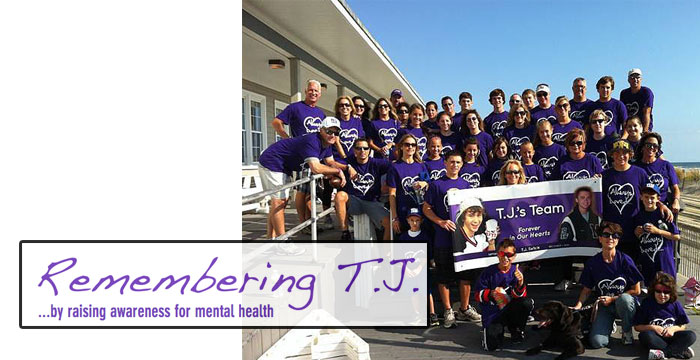We had a good turnout for the program, Remembering TJ. This was my second time listening to Mr. & Mrs. Sefcik tell the story of their teenage son TJ, who was suffering from depression. Everything they presented was consistent with the research. The most compelling statistics is as follows:
“EVERY DAY, ABOUT 12 YOUTH DIE BY SUICIDE. FOR EVERY ADOLESCENT DEATH BY SUICIDE YOU HEAR ABOUT, ABOUT 25 SUICIDE ATTEMPTS ARE MADE.”
Here are some of the steps we can take as parents that can be protective and proactive (Kaslow et. al 2013):
- INTERACT WITH YOUR TEEN POSITIVELY (GIVE CONSISTENT FEEDBACK, COMPLIMENTS FOR GOOD WORK.)
- TALK WITH YOUR TEEN ABOUT YOUR CONCERNS; ASK HIM/HER DIRECTLY ABOUT SUICIDAL THOUGHTS
- INCREASE HIS/HER INVOLVEMENT IN POSITIVE ACTIVITIES (PROMOTE INVOLVEMENT IN CLUBS/SPORTS)
- APPROPRIATELY MONITOR YOUR TEEN’S WHEREABOUTS AND COMMUNICATIONS (TEXTING, FACEBOOK, TWITTER) WITH THE GOAL OF PROMOTING SAFETY
- BE AWARE OF YOUR TEEN’S SOCIAL ENVIRONMENT (FRIENDS, TEAMMATES, COACHES) AND COMMUNICATE REGULARLY WITH OTHER PARENTS IN YOUR COMMUNITY.
- COMMUNICATE REGULARLY WITH YOUR TEEN’S TEACHERS TO ENSURE SAFETY AT SCHOOL.
- LIMIT YOUR TEEN’S ACCESS TO ALCOHOL, PRESCRIPTION PILLS, ILLEGAL DRUGS, KNIVES AND GUNS.
- EXPLAIN THE VALUE OF THERAPY AND MEDICATION TO MANAGE SYMPTOMS.
- ADDRESS YOUR CONCERNS WITH OTHER ADULTS IN YOUR CHILD’S LIFE (TEACHERS, COACHES, FAMILY)
While this is a difficult topic to address, it is important to recognize any changes in your teenager’s behavior that are different than what you have observed in him/her previously. Most importantly, address your concerns with the mental health professional that will be working with your teen.
There is so much to be learned around this topic. Stay tuned in future weeks for additional information and resources on this topic.




